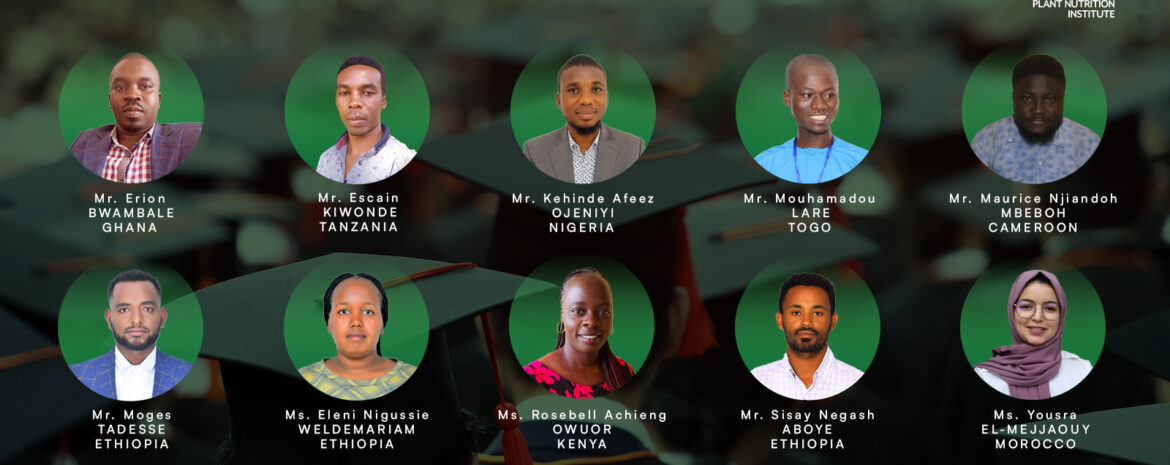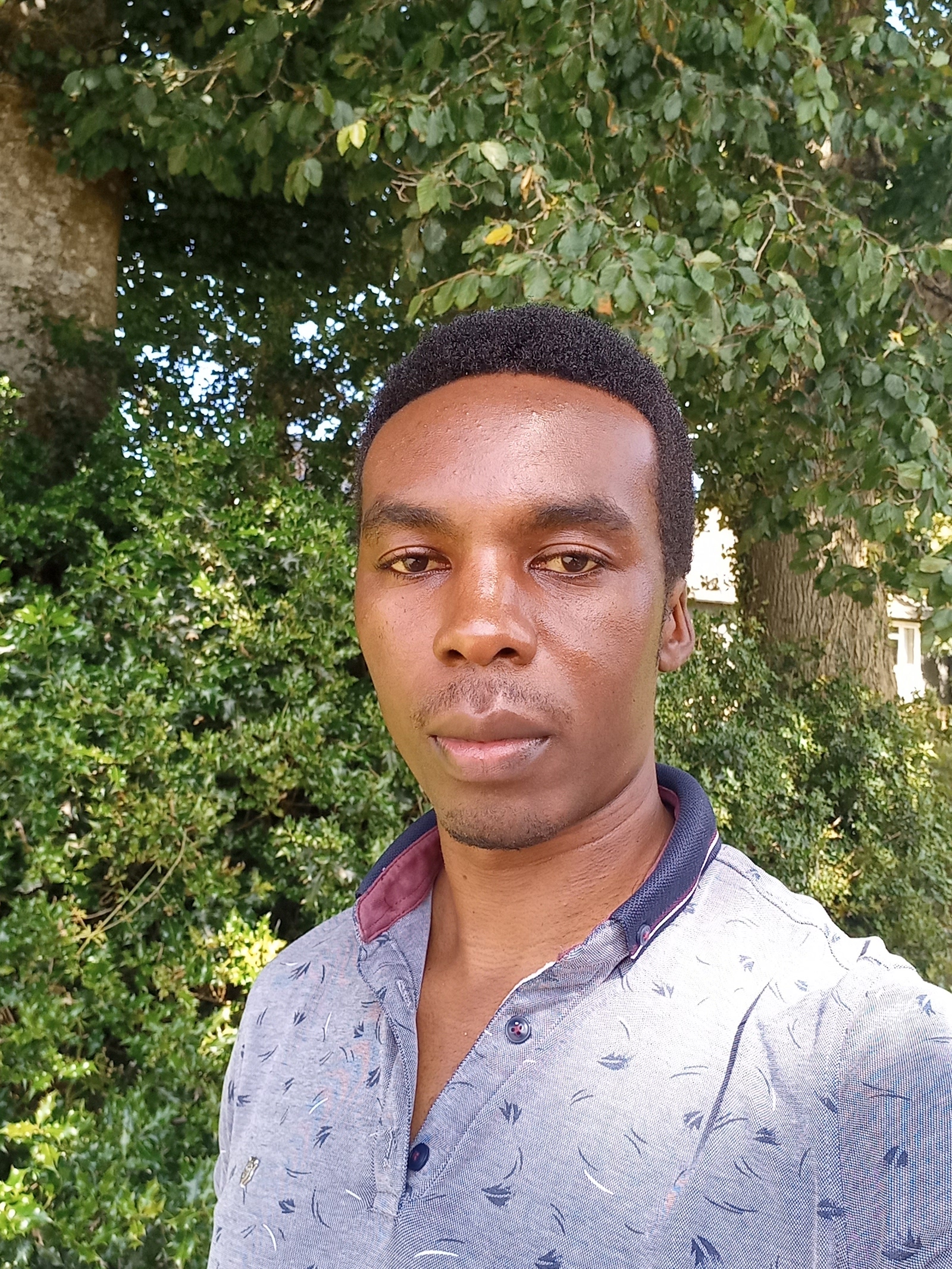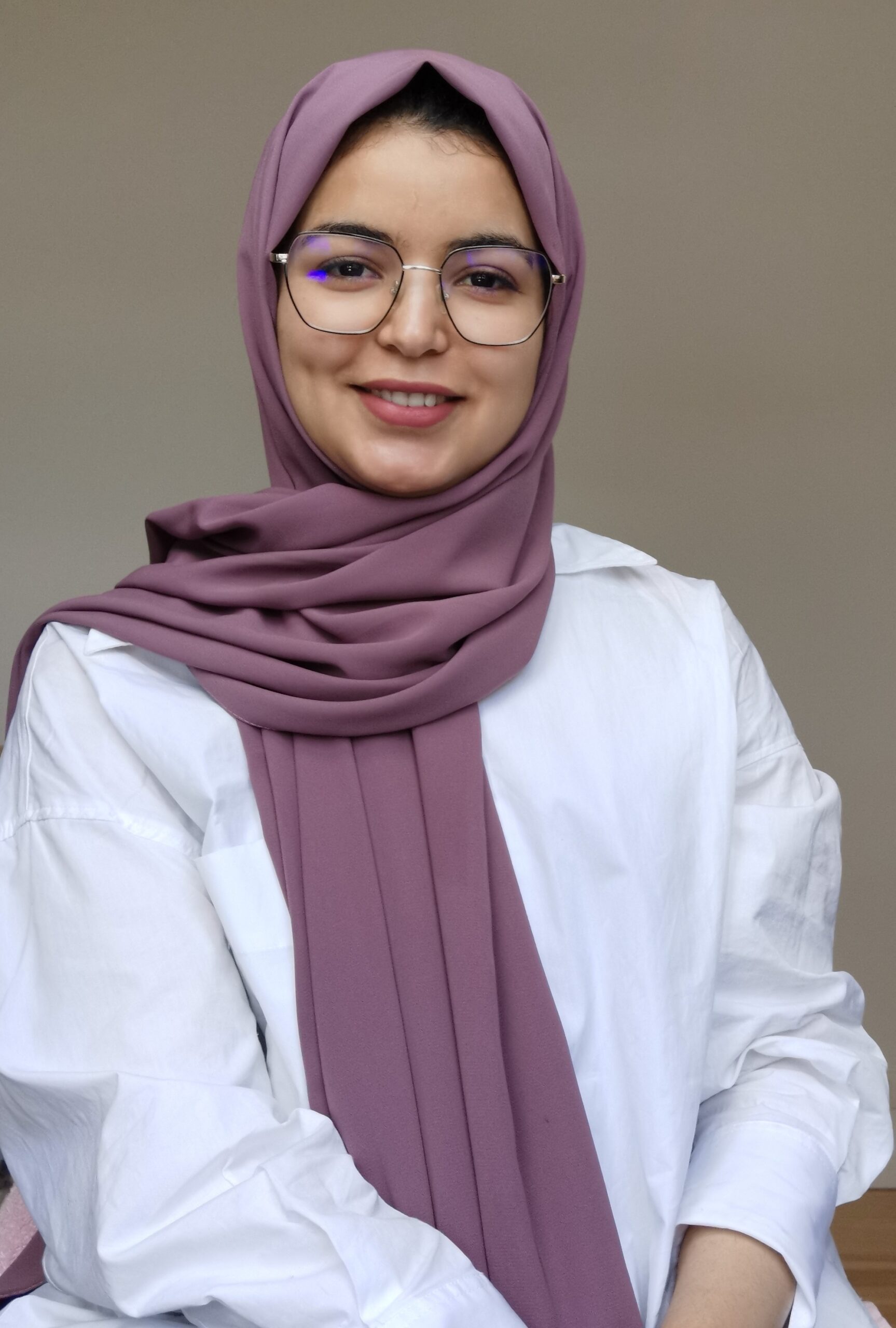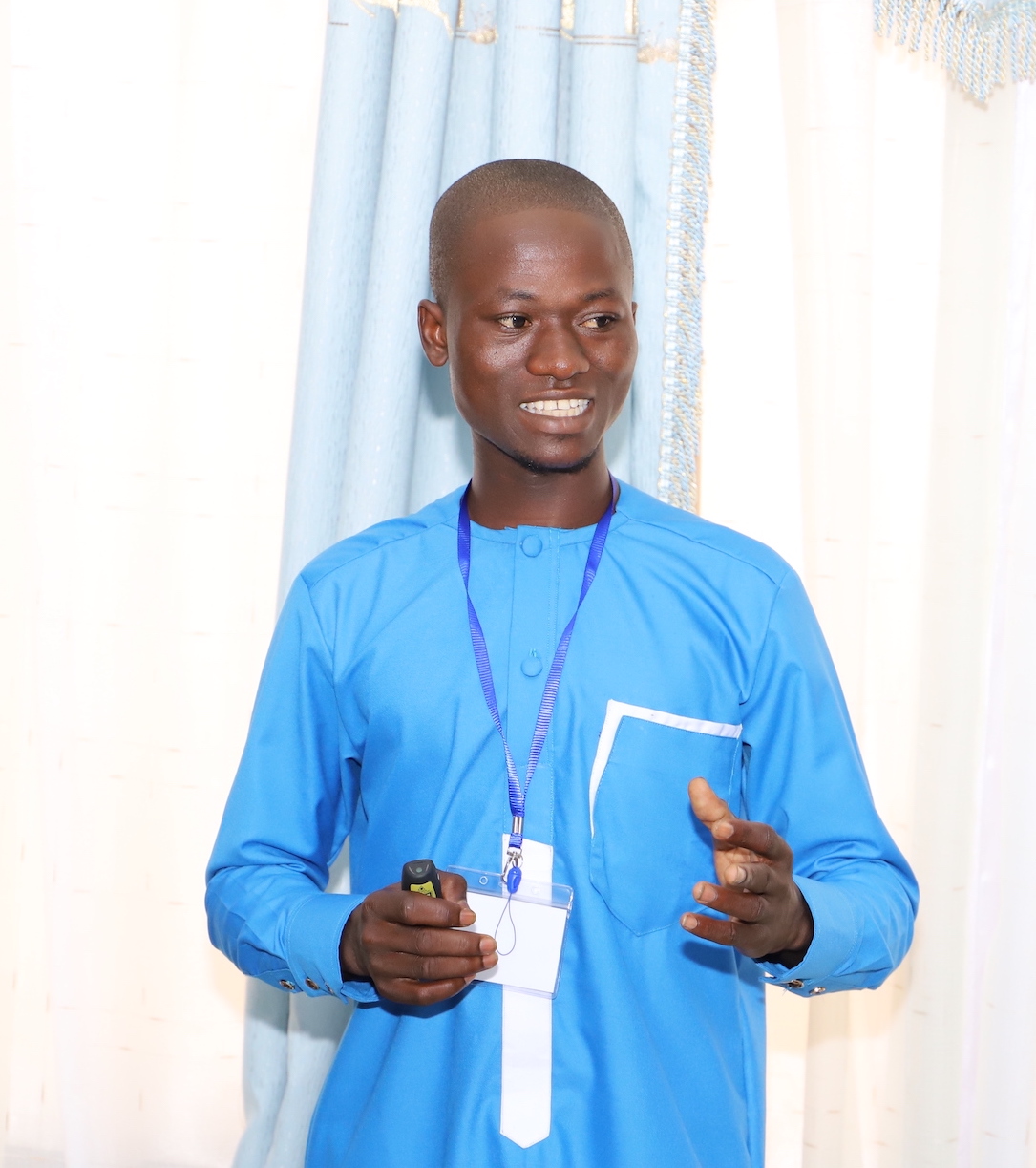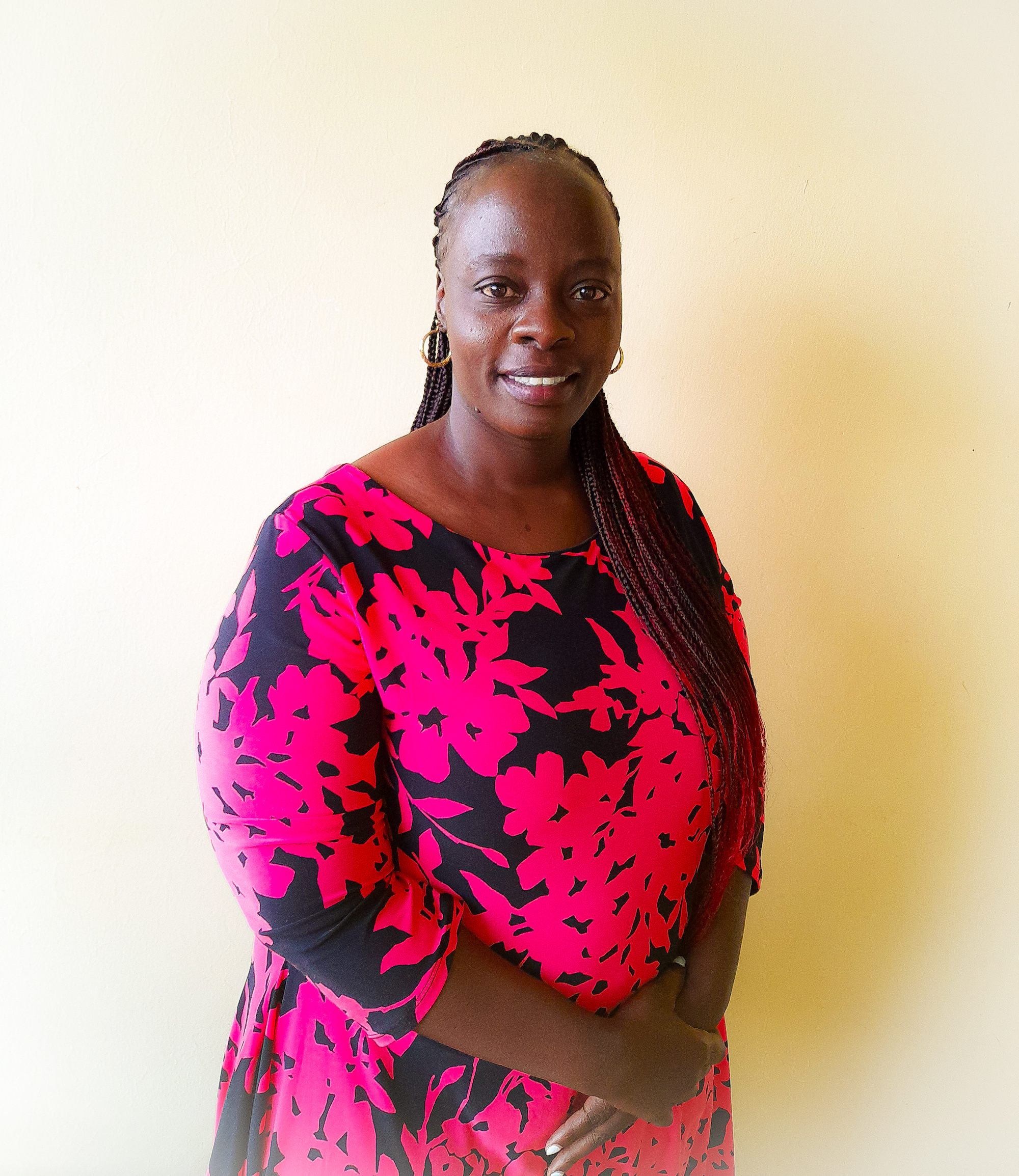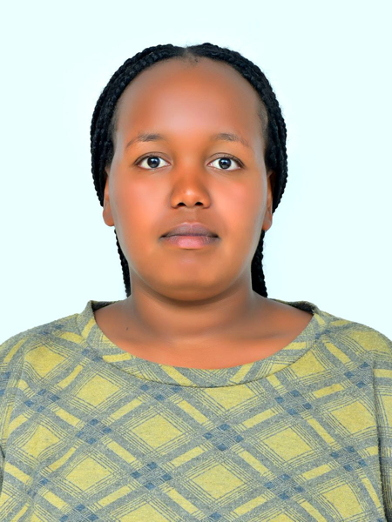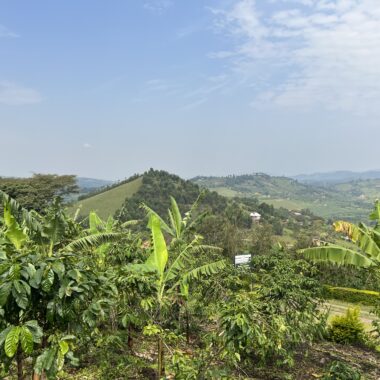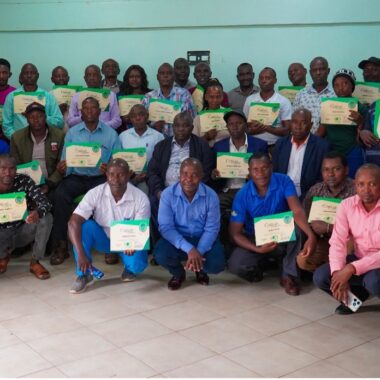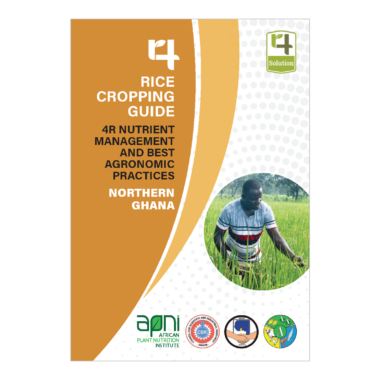2023 African Plant Nutrition Scholar Award Recipients Announced
Benguérir, Morocco, August 30, 2023 – The African Plant Nutrition Institute (APNI) has announced the finalists of its annual African Plant Nutrition Scholar Award. A total of ten African students were selected from advanced science programs focused on plant nutrition and the management of nutrients applied to crops in Africa.
“The academic institutions these young people represent, and their professors and advisers, can be proud of their student’s accomplishments,” said Dr. Kaushik Majumdar, APNI Director General.
This scholarship is supported through APNI’s continued and valued partnership with Mohammed VI Polytechnic University (UM6P) and OCP Group (OCP S.A.). This initiative strives to encourage the brightest minds to focus on the critical target of continued advancement of the science of crop nutrition across Africa. Application undergo a rigorous process via the selection committee who consider the full spectrum of academic and personal achievements for each potential recipient. Each student receives $2,000 (U.S. Dollars).
This year’s recipients include:
Mr. Sisay Negash ABOYE — ETHIOPIA
Masters Program: Hawassa University, Wendo Genet College of Foresty and Natural Resource or Oromia Agricultural Research Institute
Area of Study: Effect of Scattered Acacia Tortilis and Acacia Nilotica Trees on Selected Soil Physio-Chemical Properties and Yield of Sorghum at Babile District, Eastern Ethiopia
Scattered Acacia tortilis and Acacia nilotica trees are purposively managed by farmers as a parkland agroforestry practice for addition of nutrient to the soil through nitrogen fixation, litter addition, nutrient uptake from below the reach of crop roots and moderating soil environment. There is limited scientific studies in the area on tree-crop interaction and quantity of nutrient added to the soil due to those trees in the study area. The study aimed to determine the effects of Acacia tortilis and Acacia nilotica trees on selected physicochemical properties of soil at different distance and soil depth, and to assess effect on yield and yield components of sorghum grown at different distances from the tree trunk. The finding expected with positive tree-crop interaction through which the tree can add more nutrient to the soil that might be increase crop yield leading for food security for the farmer and encourage sustainably manage trees on farm land. The information can also help in designing sustainable land use that could enhance productivity of crops while maintaining and improving the resource base and resistance for climatic event.
Mr. Aboye hopes to be an agricultural and natural resource researcher using his knowledge to enhance agricultural production through managed nature in the country. I would like to working in an international research environment, which will give me a privilege of meeting and associating with people from all over the world having different points of view to be immerse in a society with a global outlook.
Mr. Erion BWAMBALE — GHANA
Doctorate Program: West African Centre for Water, Irrigation, and Sustainable Agriculture (WACWISA), University for Development Studies, Tamale, Ghana
Area of Study: Development and Application of Smart Fertigation Systems to Enhance the Efficiency of Water and Nutrient Usage
Erion is working on creating advanced models that simulate soil moisture dynamics using data-driven approaches. These models will facilitate the creation of optimized schedules for smart fertigation. Additionally, he is designing a model predictive controller specifically tailored for fertigation scheduling. To put his research into practice, Erion plans to implement the developed control algorithm on a microcontroller. This microcontroller will then be deployed in a real-world experiment involving open field tomato cultivation under a drip fertigation setup.
The ultimate goal of this research is to contribute to more efficient utilization of water and fertilizers in irrigated agriculture. Erion’s academic contributions are noteworthy, with over 10 published articles in Scopus indexed journals. He is an active member of several professional organizations including the American Society of Agricultural and Biological Engineers (ASABE), the International Society of Precision Agriculture (ISPA), the American Society of Civil Engineers (ASCE), the International Water Association (IWA), the Pan African Society for Agricultural Engineering (PASAE), and the International Commission of Agricultural and Biosystems Engineering. He also holds the title of Young Water Professional of the International Commission on Irrigation and Drainage (ICID).
Erion’s passion lies at the intersection of precision agriculture, irrigation and drainage, dynamics and control, hydraulic and hydrological modelling, and artificial intelligence. His overarching aim is to align his work with the sustainable development goals, particularly by advancing precision fertigation strategies that can play a pivotal role in enhancing food security across Africa.
Mr. Escain KIWONDE — TANZANIA
Doctorate Program: University of Dar es Salaam, Tanzania
Area of Study: Investigation of the Effects of Macro-nutrients and Water Stress on Avocado Growth and Productivity in Njombe District Council, Tanzania
The overall goal of Escain’s study is to increase the yield productivity per tree of Hass avocado by optimizing nutrient application techniques through targeting specific tree phenological processes. His specific objectives include: the assessment of the effect of organic manure and NPK fertilizer application on the phenological character and yield of Hass avocado; determining the effect of organic manure and NPK fertilizer application on nutritional variation in Hass avocado; establishing the effects of water stress on growth and nutrient uptake of Hass avocado seedlings; and assessing the spatial distribution of soil macro-nutrients in Hass avocado production areas of Njombe District Council.
At the end of my study, Escain expects to provide guidelines to farmers with necessary information on quantities of fertilizers to be applied and the best time of application. This information will help farmers to increase productivity per tree of Hass avocado while minimizing nutrient losses and contamination to the environment.
Upon finishing my studies, his goal is to continue doing research, share findings through publications and become the best plant nutrition researcher in vegetables and fruit trees production. He will also continue my teaching role at the University of Dar es Salaam which will include guiding and supervising students with interests in studying plant nutrition and fertilizer application.
Ms. Yousra EL-MEJJAOUY — MOROCCO
Doctorate Program: Doctorate program, University Mohamed VI Polytechnic (UM6P), Benguérir, Morocco and Gembloux Agro-Bio Tech, University of Liège, France
Area of Study: Multi-scale Phosphorus Monitoring in Soil-plant Systems using Spectroscopic Proximal Sensing and UAV-based Multispectral Imaging
Ms. El-Mejjaouy’s research focuses on using technology for precision agriculture and monitoring nutrients in soil-plant systems. It enhances our understanding of how phosphorus (P) affects plant and soil optical properties and provides comprehensive and predictive models for P using a combination of multiple techniques: proximal-based spectroscopy, such as chlorophyll a fluorescence and visible near-infrared spectroscopy, as well as UAV-based multispectral imagery. A major contribution of the research is the utilization of a variety of data sources, ranging from point-based measurements to remote sensing using unmanned aerial vehicles, to assess the P status in both wheat plants and soil at different scales.
Having a keen interest in sustainable agriculture, Yousra is interested in positively impacting the environment and contributing to the development of monitoring practices that utilize cutting-edge technologies to accurately assess soil and plant properties.
Mr. Mouhamadou LARE — TOGO
Doctorate Program: Laboratoire Interface Sciences du Sol, Climat et Production Végétale de l’Ecole Supérieure d’Agronomie de l’Université de Lomé (LISSCPV/ESA/UL), Togo
Area of Study: Fertilité Endogène du Sol et Stratégies de Gestion pour L’amélioration de la Productivité et de la Rentabilité Économique de la Culture du Maïs dans la Région des Savanes du Togo
L’objectif de la thèse est d’améliorer durablement la production du maïs dans la région des Savanes du Togo à travers des pratiques de gestion agronomiques incarnant l’interface sol-climat-végétal. Cette recherche est une réponse de la dégradation de la ressource de base et à la baisse continue des rendements en l’occurrence le maïs, principale culture et aliment de base de la population de la région des Savanes au Togo à tel point que la sécurité alimentaire semblent se limiter à sa disponibilité spatio-temporelle mais aussi à son accessibilité pour les ménage. Au terme de cette thèse, les causes de la variabilité spatiale des rendements en grain du maïs sont connues, la fertilité endogène des sols de la région des Savanes du Togo est actualisée ; des pratiques de gestion agronomique pour la production du maïs dans la région sont développées sur la base de l’interface sol-climat-végétal; des recommandations de pratiques de gestion techniquement, socialement et économiquement justifiées sont faites pour la production du maïs dans la région.
Mouhamadou’s objectif de carrière est avant tout d’atteindre l’objectif de la thèse avec des résultats attractifs, qui me fourniront des connaissances scientifiques solides me permettant de mettre en place des programmes de recherche-développement au niveau national, régional et même international.
Mr. Kehinde Afeez OJENIYI — NIGERIA
Masters Program: University of Mohammed VI Polytechnic (UM6P), Benguérir, Morocco
Area of Study: Assessment of Maize Yield Gap and Nutrient Use Efficiencies through the Application of National and Regional Fertilizer Recommendations as Straight and Compound Fertilizer in Mid-belt Nigeria.
The lack of advanced technology in the blending company has led to instances of segregation in the blended fertilizer, as a consequence, certain nutrient application rates might not adequately meet the requirements of plant. With straight fertilizer, each nutrient can be applied at recommended rate and time of plant uptake. Efficient fertilizer management practices have the potential to significantly increase maize yields in the mid-region of Nigeria beyond the levels achieved through current farming methods. This research aimed to assess the effects of national and regional fertilizer recommendations, applied as straight and compound fertilizers, on soil properties, nutrient efficiency, and maize yield in the mid-belt region of Nigeria. Despite the intention of blend fertilizers to reduce costs and create customized formulas, the findings revealed that the split application of nutrients enhanced nitrogen uptake efficiency and resulted in higher maize grain yields compared to the NPK blend application, emphasizing the need for adopting regional fertilizer recommendation applied as split using straight fertilizers to increase maize yields and improved economic returns in the mid-belt region of Nigeria.
Mr. Ojeniyi’s, ultimate career goal is to become a leading agronomy researcher, making impactful changes in agricultural practices including integrated nutrient management, fertilizer recommendations, crop nutrition, and contributing to improved food security and sustainability, not only in Nigeria but also globally. He intends to proceed to enrol for a Ph.D. after the master program to increase my knowledge and research experience in agronomy.
Ms. Rosebell Achieng OWUOR — KENYA
Doctorate Program: Maseno University, Kenya
Area of Study: Comparative Economic Analysis of Tea Yield Response to Nitrogen Fertilizer Use and Plucking Intervals in East Africa
Currently, blanket input recommendations for nitrogen (N) fertilizer application and plucking intervals are contingent on response trials conducted Kenya. Hence, locations where these recommendations are exported fail to replicate results similar to the trial locations because of the heterogeneous aspects of the locations. The objectives of Rosebell’s research are to determine site-specific optimal economic N fertilizer rate and harvesting intervals of tea clone TRFK 6/8 in selected tea-growing areas in East Africa (i.e., Kenya, Tanzania, and Rwanda), and to determine the economically efficient site-specific interaction effects of various nitrogen fertilizer rates and plucking intervals. Information from this study will enable the formulation of recommendations that are site-specific and act as a guide for fertilizer rate and plucking intervals recommendation in different areas as a less expensive alternative to trials for all released clones in all regions, thus realizing cost savings in adaptive research.
Her immediate goal is to finish her doctoral dissertation and publish in prestigious journals and ensure these findings assist scientists, academics and farmers to economically optimize tea output from agronomic inputs, and ultimately precision farming for different tea clones. She is looking forward to collaborating with a global policy and research organization that will provide her the opportunity to put her knowledge and experience to use for issues impacting precision agriculture. Her goals for the future are to establish herself as a prominent academic lecturer in agricultural economics, and a researcher dedicated to providing farmers with tools for sustainable and competitive optimum economic crop productivity.
Mr. Maurice Njiandoh MBEBOH — CAMEROON
Doctorate Program: University of Buea, Cameroon
Area of Study: Evaluating the Effects of Plant Growth-Promoting Microorganisms and Plant Bioactive Materials on Soil Fertility, Plant Nutrition and Soybean Grain Yield
Growing up in a subsistence farming household and community, Mr Mebeboh had first-hand experience of the challenges involved in agricultural production, which stimulated a natural desire to become an agronomist with special interest on soil fertility management and plant nutrition. His Ph.D. Thesis, “Evaluating the Effects of Plant Growth-Promoting Microorganisms and Plant Bioactive Materials on Soil Fertility, Plant Nutrition and Soybean Grain Yield” aims to provide the best bet management practices that can restore the soil microbiota and functionality, enhance soybean nutrition as well as grain yield.
The specific objectives of this research are principally focused on formulating consortia of effective microbial inoculants and suitable bioactive plant materials that are adapted to the specific needs of farmers, and promoting their effective use for managing major abiotic (nutrient deficiency) and biotic (pests) constraints under sustainable intensification, within the nexus of integrated soil fertility management. This research will foster sustainable development by improving plant nutrition and protection, which will enhance soybean productivity, increase farmers’ income and welfare, reduce hunger and malnutrition and decrease food and nutrition insecurity especially in Sub-Saharan Africa.
Mr. Moges TADESSE — ETHIOPIA
Masters Program: Hawassa University, Ethiopia
Area of Study: Fractionation and availability of phosphorus in acid soils under different land uses of Dalle and Wonsho district of Sidama Region, Ethiopia
Mr. Tadesse’s study is aimed to quantify the various labile and stable pools of inorganic and organic P in acidic soils of Dale and Wonsho woredas, Sidama region. Although little is known about Ethiopian soil P distribution, transformations, and fertility in that P availability in the country’s dominant soils is relatively low, the low levels of plant-available P are an inherent limitation to crop production on most Ethiopian soils, yet the nature of soil P has not been assessed across the wide range of soil types that are present across the country. A complete budget of the P forms present in soil is required to comprehend the fate of applied P fertilizers because available P in soil is not the only entity that P may reside in or fertilizer enters into. This can be done by identifying the labile and non-labile soil pools at the study area particularly (Dale and Wonsho Sidama Ethiopia) as well as across the country and abroad with similar soil types. Evaluating the effects of different land uses on soil phosphorus pools and assessing soil phosphorus availability and soil properties under different land uses are essential, and therefore this study initiated to solve these problems in the study area.
Moges’s future goal is to improve agricultural production and productivity by implementing healthy and quality agricultural research system and academia to help change farmers life through best soil management practice and increasing soil fertility by keeping P-fertilizer quality to help agricultural sustainability for the development of the country.
Ms. Eleni Nigussie WELDEMARIAM — ETHIOPIA
Master’s Program: University of Gondar, Gondar, Ethiopia
Area of Study: Enhancing soil health and wheat yields through integrating cost-effective nutrient management practices in Northwest Ethiopia
Ms. Weldemariam is pursing her Masters degree at the University of Gondar and is developing a research proposal on ‘Enhancing soil health and wheat yields through integrating cost-effective nutrient management practices in Northwest Ethiopia’. Her objectives are (1) to determine mechanisms that make lupin grow in highly acidic and nutrient poor soils, (2) to quantify the amount of nitrogen fixed by lupin and vetch legumes and (3) to explore effect of green manure and legume rotation integrated with N fertilizer on nutrient availability and use efficiency, soil carbon stock, microbial communities and wheat yields. To address the objectives, field experiments will be conducted at Farta and Guna districts from 2023-2025 cropping seasons. In this project, best nutrient management practices for alleviating soil acidity, enhancing nutrient use efficiency, soil carbon stock, microbial communities and crop productivity will be developed. Further, this study will create insights for land users and policy makers about the contribution of legumes-cereal integration in enhancing soil quality, crop yields and food security.
Her interests and future career goals include (1) conducting scientific research on integrated nutrient management, nutrient bioavailability, nutrient use efficiency and sustainable crop production, (2) giving quality community services to solve the problems and needs of the society, (3) teaching and advising students on plant nutrition, soil chemistry, nutrient cycling and agronomy courses and (4) develop my profession through carry out innovative research, publish articles on peer reviewed journals and present research findings on international conferences.

